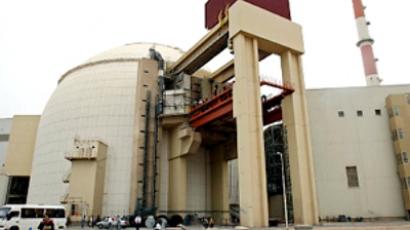Dreaming of a world without nuclear weapons
The main objective of the Nuclear Non-Proliferation Treaty (NPT) of 1970 is aimed to reduce the threat of nuclear annihilation, yet four decades later nuclear safety remains a burning issue.
The treaty was signed at the height of the Cold War, when the entire world lived in constant fear of an all-out nuclear war breaking out between the Soviet Union and the United States, the nuclear-armed ideological foes. Thus, when the two superpowers were among those who signed the deal, it was a real breakthrough for international global security.
But as the dangers of the Cold War may have passed, many new ones have arisen.
The Nuclear Non-Proliferation Treaty is still in effect and currently has 189 signatory states that have pledged not to develop nuclear weapon technology; those who presently possess such weapons have declared their intent to get rid of them in the near future.
Despite the conditions set down in the NPT, some experts say we still face a nuclear challenge, and they readily support the claim.
“First, the nuclear non-proliferation regime is eroding,” argues Evgeny Buzhinsky, who was one of the participants to help draft the NPT. “More countries possess nuclear weapons and there are threshold countries that are about to join the nuclear club.”
Buzhinsky then made reference to one of the gravest threats to international security: terrorists with nuclear weapons.
“We now talk about nuclear terrorism, something which couldn’t be imagined 40 years ago,” he said.
The conditions set down by the NPT bans non-nuclear countries from developing atomic weapons, and in return grants them access to nuclear technology for the purpose of generating electricity. But this has not prevented India, Pakistan and North Korea from joining the nuclear club, while Israel, which has neither confirmed nor denied its status, is widely believed to have one of the world’s most deadly nuclear arsenals.
The one thing that the experts are unanimous about is that the treaty has become an effective bargaining chip in modern politics.
The document's most infamous loophole is Article 4, which allows for the use of civilian nuclear energy. Iran, whose nuclear aspirations now top the international agenda, claims it is enriching uranium in full compliance with this provision. But not everybody agrees. Indeed, some nations fear that Iran is secretly developing a nuclear weapons program behind the shroud of a civilian energy program.
"For almost twenty years Iran has been working on its nuclear program in secret from the International Atomic Energy Agency (IAEA) and in violation of the Non-Proliferation Treaty,” says Sergey Lavrov, the Russian Foreign Minister. “It was only after its activities were revealed that Iran started contacts with the IAEA and it now has to answer a range of questions. So far, we haven’t received definite answers.”
Lavrov then made reference to a secret nuclear facility that the Iranians had failed to disclose until late last year.
“What’s more, a surprise came when in September we found out that the Iranians had for a long time been building a nuclear facility in Qom,” Lavrov added.
Tehran's clandestine atomic activities have prompted international leaders to make calls for a draft of a new weapons elimination treaty to be hammered out.
If ratified by all current NPT members, the development of nuclear fuel would be limited to very few states and would be subject to rigorous controls.
But what must exist to ensure the deal will work is the trust from all the parties and their determination to stick to their commitments up to the end.













